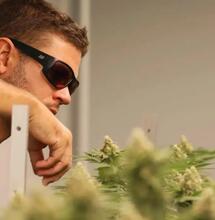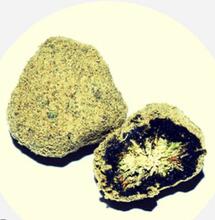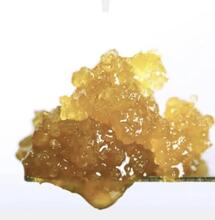Why Stopping Cannabis Use Can Trigger Vivid Dreams

Many people use cannabis in part to help them sleep. While some evidence suggests that cannabis may help, there is still a lot that is unknown about its impact on the quality of sleep.
What is known is that THC is linked with decreases in rapid eye movement (REM) and an increase in slow-wave sleep. However, another major cannabinoid, CBD is linked with either increases or decreases in REM, depending on the dose taken. Many of these studies however have been carried out on animals, not humans, and as a result, the ratio of THC to CBD in cannabis can differ greatly between the type of cannabis product. This does not take into consideration the many other sleep-impacting minor cannabinoids including CBN. Therefore it is not straightforward to work out what's going on.
REM is integral to the whole design of dreaming. Typically, if you wake up during the REM stage of sleep, you’ll be able to remember your dreams. This means that a reduced amount of REM sleep will lead to less chance of being able to recall your dreams.
When people using cannabis regularly stop using it, the body can experience withdrawal effects that cause behaviour in the body that is the opposite of what they would experience whilst using it. This means that during the withdrawal spell, those who stop using cannabis may find that it takes longer to get to sleep, experience more REM sleep and have more vivid and memorable dreams that are recalled more powerfully and vividly.
It may be that there are some memory-impairing effects linked to THC that suppress dream recollection, which then bounces back once people stop using it.
Whilst the majority of symptoms that are linked with cannabis withdrawal, including changes in appetite and anxiety, tend to dissipate within the space of a few weeks, the effects that it has on dreaming can last for up to 45 days. For someone who's been a regular, daily user of cannabis for many years, suddenly recalling dreams in such a vivid way can be shocking and very noticeable.
What Does the Research Tell Us?
Because of the restrictions associated with studying cannabis, it’s still unknown whether there’s a specific dose that improves sleep or worsens it, how inhaling versus eating cannabis changes sleep and whether any of the effects can be manipulated by combining THC and CBD.
Furthermore, many of the investigations into cannabis and dreaming were carried out in the 1970s, a time since when the cannabis landscape has transformed drastically. There has been much more research conducted on the consequences of sleep on alcohol, which works differently on the brain and body but does also seem to decrease REM sleep in high amounts and is believed to vary sleep architecture.
THC is lipophilic, which means that it attaches to fat molecules and can remain in the body for up to 30 days as it is released slowly into the bloodstream. Many factors can affect the amount of THC present in your body at a time.
Although some cannabis products and brands may promote it as having effects on sleep, there is not yet enough evidence to say whether that is true. However, the effect that it has on dreaming certainly does point to the fact that it is unsettling some elements of the process at the very least.
More From Soft Secrets:
Medical Cannabis, the Pro's and Con's










